for those of you who don’t know: ravens can learn to talk! but there’s a second surprise – their voices are deeper than should be possible and exude raw power!
Tag: raven

researchers discovered that ravens use gestures to grab each other’s attention. referential gestures, like pointing, are common with humans and apes, but not often associated with non-primates. ravens were found grabbing and offering non-food items like moss, sticks, and rocks with their beaks to other ravens to grab their attention.
(x)

though humans were once thought to be the only animals capable of planning for future events, scientists found that common ravens can pass these sorts of tests with flying colors. when given a tool that could be used to access a treat, the ravens took it and used it successfully. hours later, when given a lineup of objects they could choose from, the majority of ravens chose the tool, and held onto it for future use.
(x)
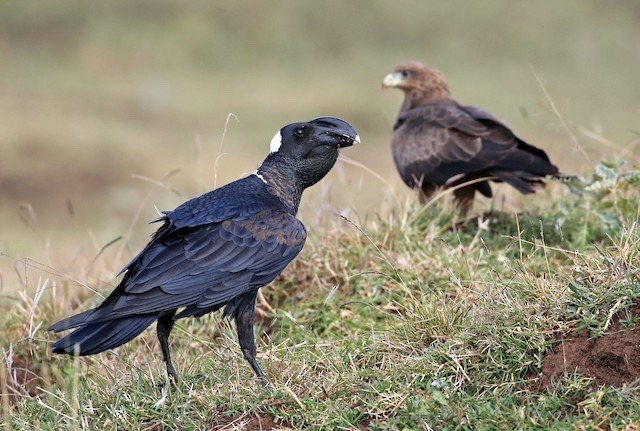

the thick billed raven is a large corvid endemic to africa. thick-billed ravens are easily distinguished from other ravens by their massive beaks. like other ravens, they are opportunistic feeders, and will eat on carrion, small animals, insects, and more. they are considered by some to be the heaviest passerine in the world.
(x)
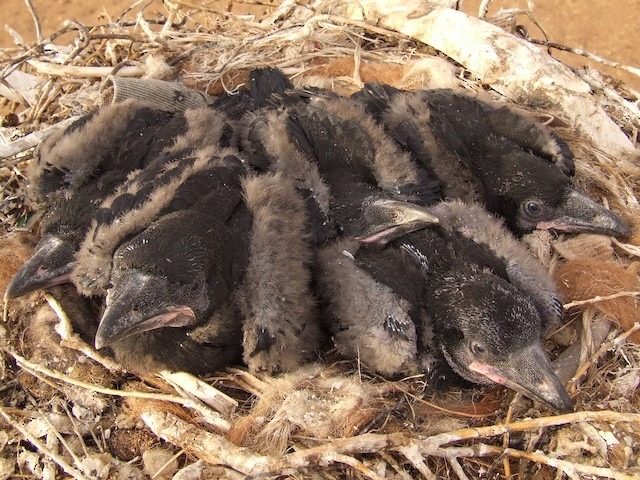
a nest full of baby common ravens. ravens are altricial, meaning that when they hatch, they are flightless and helpless, completely dependent on their parents. even after fledging the nest, the young rely on the parents for supplemental feeding.
(x)
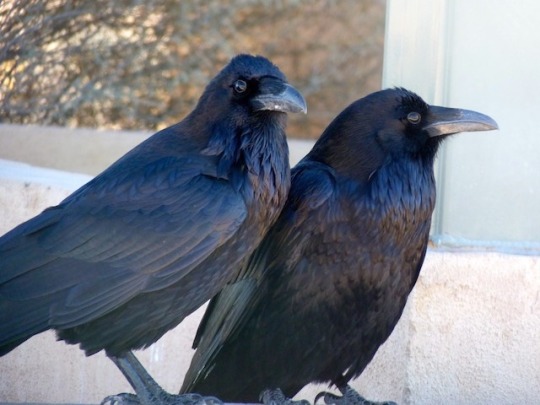
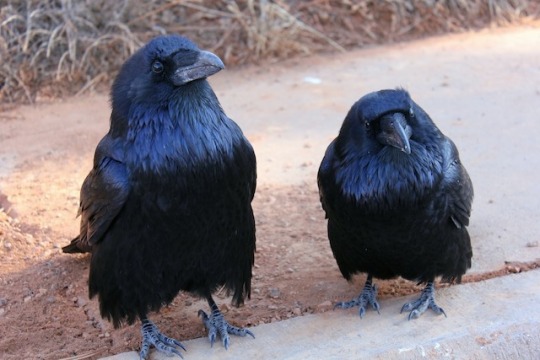
common ravens may be stereotyped as aloof loners, but they are incredibly social birds. ravens live in a flock called an unkindness. flock members respond to calls for help and assist other flock members in defending against predators. ravens are monogamous, and pairs are devoted to each other and can frequently be seen together consistently engaging in ‘couple’ behaviors like preening.
(x)
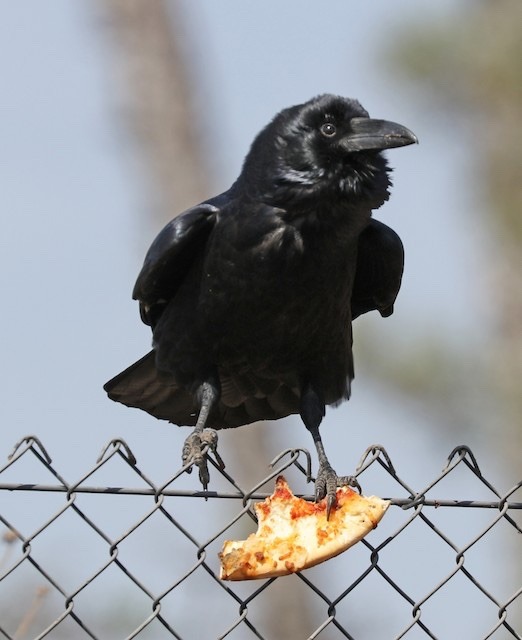
a common raven enjoys a pizza snack. part of what has made ravens and other corvid species so successful in urban environments is their intelligence and adaptability – their willingness to find alternative nesting spots and food they wouldn’t see in the wild.
(x)
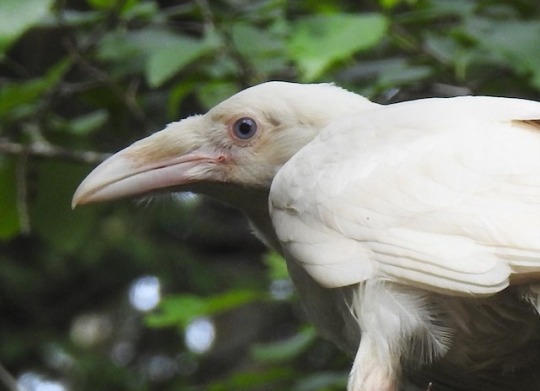

a common raven with leucism. leucism is similar to albinism, but is a partial lack of many pigments, not a complete loss. ravens are known for their black pigmentation; pure white birds like this one suffer from increased visibility to predators, as well as sometimes being rejected socially.
(x)

a leucistic common raven going for a stroll. while usually leucism (a reduction in pigmentation) presents as a few white feathers in ravens and crows, they can also be overall paler like this bird.
(x)

crows and ravens have demostrated a knowledge of ‘fairness’ – and demand equal treatment. researchers did an ‘inequity test’ on the birds. some birds received cheese, a high value treat, and others received a piece of grape, which was not desirable. those who received the grape started refusing to accept it. the researchers then performed an ‘effort control’ test. some birds were given a piece of cheese with nothing required of them. other birds could choose from cheese or a grape – but had to exchange a token for them. again, the birds that were being treated unfairly refused to cooperate.
(x)